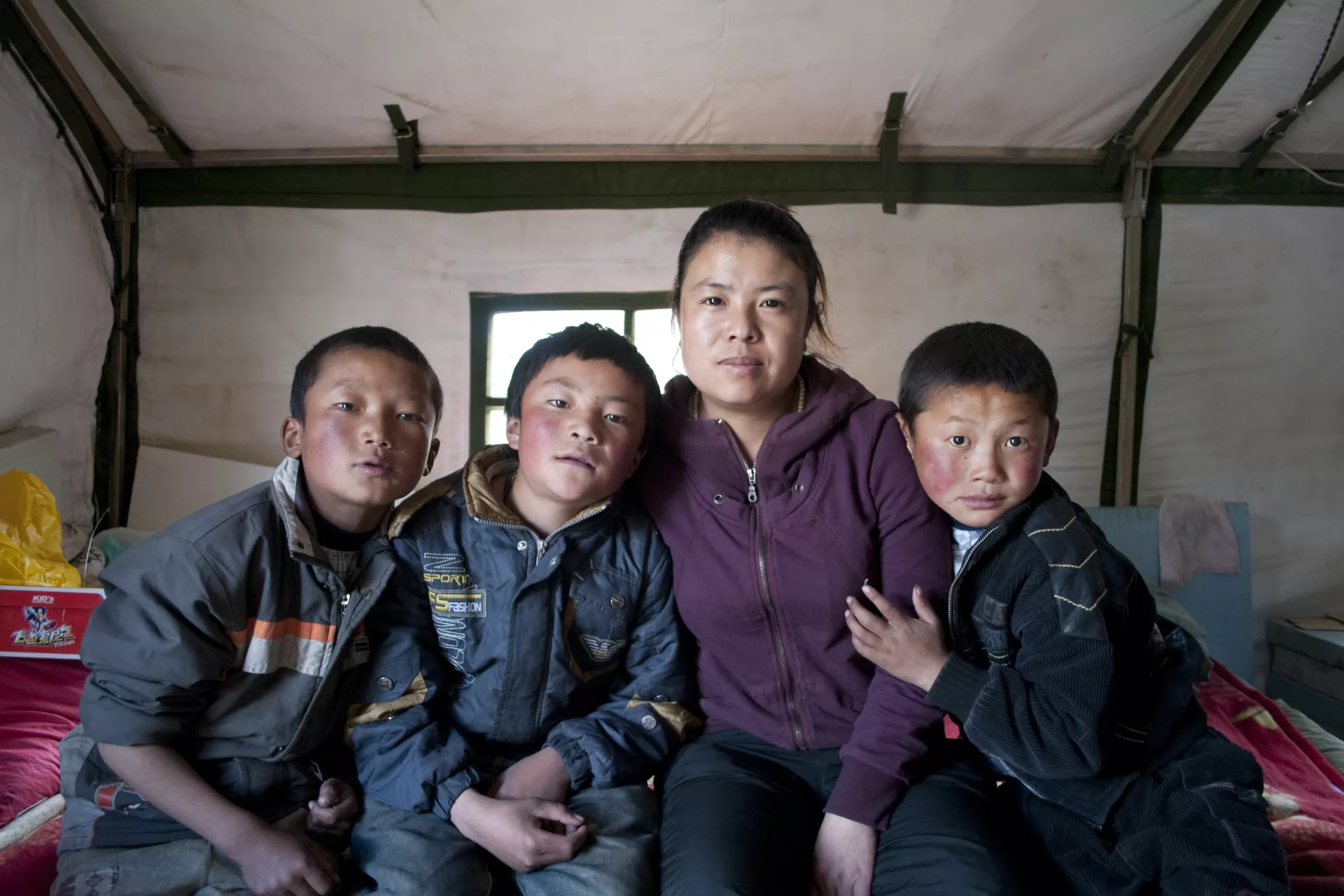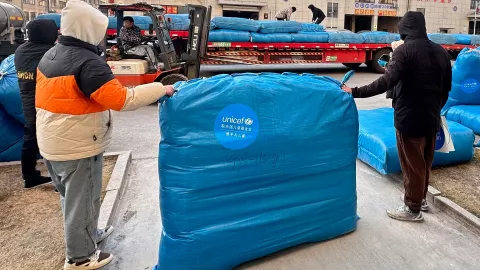Recovering with heavy hearts
Recovering with heavy hearts

- Available in:
- 中文
- English
The 7.1 magnitude earthquake of April 14 has not only left indelible scars on the landscape of Yushu County, but also traumatizing memories for survivors to cope with in their daily lives.
"I have suffered from insomnia since the earthquake. No matter how hard I work in the daytime to make myself exhausted, I can't fall asleep at night. The scenes of that day and the faces of my students who were killed by the earthquake appear vividly in my mind. I cannot stop thinking about them," said Xu Haiying, aged 30, a teacher at Yushu No.3 Complete Primary School.
Though Xu and other teachers desperately dug students out from under the collapsed classrooms, still four children in her class and a dozen others in the school were found dead.
"Now when I walk around the campus, I always think of which student was found buried under the debris of what corner," she said.
She has lived in a 12 square metre tent ever since the tragic day with two students who were sent by their neighbours to the school for assistance. The boys, brothers, were abandoned as infants and now their foster parents have died under the rubble of their collapsed home. Ever since then, Xu Haying has been taking care of the brothers and also provides free meals to other orphans.
"The boys are still very afraid," she said. "They say to me, 'Let's not move into buildings; let's live in the tent forever.' The students in our school will be transferred to other places to resume schooling, but these two refuse to go, saying, 'The earthquake will happen in other places too. We don't want to leave. The earth is going to explode soon.'"
Getting back to school is the best way for these children to return to normalcy. But so far, only fifth and sixth graders have resumed classes in this school. Other students are home with their families, put to work collecting caterpillar fungus (cordyceps sinensis), the only source of family income for many Tibetan nomadic herdsmen.
To save the deteriorating ecology in the region known as the Heads of China's Three Major Rivers, thousands of herdsmen have been moved to townships and county seats in the past few years. The earthquake devastated this new life that many were still adapting to.
"The children's families are also traumatized. The earthquake took away everything from them," Xu said. "For many, their only family property is now a relief tent." The families need more warm clothes, shoes and food.
Based on experiences from the Sichuan Earthquake, UNICEF is teaming up with the National Working Committee on Children and Women to set up two Child Friendly Spaces in the resettlement areas of Yushu County. A Child Friendly Space is a place where children and families can play and receive continuous psycho-social support. Up to now, 40 Child Friendly Spaces across the Sichuan quake zone have served over 100,000 children and 5000 parents in the past two years. It is UNICEF's goal to extend such support and service to the children and families of Yushu County.




